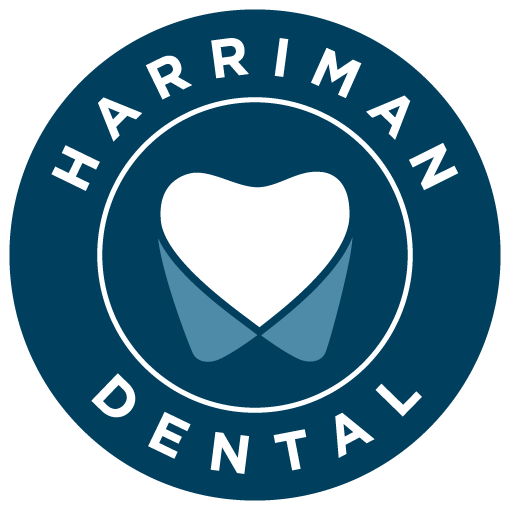Dental Implants in Harriman, NY
Dental implants are a very reliable source for effective tooth replacement. Whether you have lost one tooth or many, implants can provide a permanent solution that looks and functions normally.
Make Dental Implants Your First Choice
Dental implants are essentially artificial teeth that permanently replace lost, damaged, or decaying natural teeth. Unlike removable dentures, fixed dental implants are permanently anchored to the jawbone, providing a lifetime of durability that restores up to 99% of the use and functionality of natural teeth. Most dental implants consist of three main parts: the implant post, the abutment, and the restoration. First, the implant post (commonly made of titanium) is surgically placed into the jawbone. Next, the abutment is attached to the post, and this abutment will serve as an anchor to permanently attach the custom replacement tooth (known as the restoration). At our acclaimed practice in Harriman, NY, our implant specialists are well-versed in all forms of implant fabrication, surgery, and final placement.
At Harriman Family Dental’s Implant Center in Harriman, NY, we acknowledge that no two patients are the same. This is why each restoration is custom-made to the patient’s exact measurements and specifications. This requires an unprecedented level of skill and experience in order to produce a comfortable, functional, and aesthetically pleasing restoration. The doctors at our Harriman, NY office are thoroughly trained in implant placement and will work with you on a personal level to make sure that your restorations not only look beautiful but that they function flawlessly and will provide decades of durable, reliable use.
-
What is the procedure for dental implants?
Dental implant procedure involves several steps. Firstly, a dentist evaluates the patient’s dental health and develops a personalized treatment plan. Then, the implant placement surgery is performed under local anesthesia. After the implant placement, a healing period of several months is necessary, followed by abutment placement and restoration placement. Finally, regular follow-up appointments are necessary to ensure proper functioning of the implant. Dental implant surgery provides long-lasting results and significantly improves the quality of life for patients with missing teeth.
-
What types of dental implants exist?
Dental implants come in various types to accommodate different patient needs and treatment goals. The main types of dental implants include:
Endosteal Implants: Endosteal implants are the most common type of dental implants and are placed directly into the jawbone. They typically consist of small, screw-shaped titanium posts that serve as artificial tooth roots. Endosteal implants are suitable for patients with adequate bone density and are used to support single crowns, bridges, or dentures.
Subperiosteal Implants: Subperiosteal implants are placed on or above the jawbone but beneath the gum tissue. These implants consist of a metal framework that sits on the jawbone, with posts protruding through the gums to support the dental restoration. Subperiosteal implants are often used when there is insufficient bone volume for traditional endosteal implants and may be an alternative for patients who cannot undergo bone grafting procedures.
All-on-4 Implants: The All-on-4 dental implant technique involves the placement of four implants strategically positioned in the jaw to support a full arch (upper or lower) of fixed prosthetic teeth. This innovative approach allows for the restoration of an entire arch of teeth with minimal implants, reducing the need for bone grafting and expediting the treatment process.
Mini Implants: Mini implants are smaller in diameter compared to standard implants and are often used in situations where there is limited bone volume or space. These implants are commonly used to stabilize removable dentures, providing increased retention and stability for denture wearers.
Zygomatic Implants: Zygomatic implants are longer implants that anchor into the zygomatic (cheek) bone rather than the maxillary (upper jaw) bone. They are utilized in patients with severe bone loss in the upper jaw who are not candidates for traditional implant placement due to insufficient bone volume. Zygomatic implants offer a viable solution for restoring dental function and aesthetics in these challenging cases.
Each type of dental implant has its unique characteristics, advantages, and considerations. Your dentist or oral surgeon will evaluate your oral health and discuss the most suitable implant option based on your individual needs and treatment objectives.
-
What are the benefits of dental implants?
Dental implants offer several significant benefits for individuals with missing teeth. Firstly, they provide a permanent and stable solution for replacing missing teeth, restoring proper chewing function, speech clarity, and overall oral health. Unlike traditional dentures or bridges, implants integrate with the jawbone through a process called osseointegration, which helps preserve bone density and prevent bone loss in the long term. Additionally, dental implants look, feel, and function like natural teeth, enhancing both aesthetics and confidence. They eliminate the discomfort and inconvenience associated with removable prosthetics, allowing for easy maintenance and improved oral hygiene. With proper care, dental implants can last a lifetime, making them a durable and cost-effective option for tooth replacement that significantly improves quality of life.
More Questions?
If you have more questions about dental implants, please contact our office and we will be happy to discuss further. For existing patients, please book your appointment through our online scheduling link below. New patients should use the button below to fill out a Request Appointment form.

